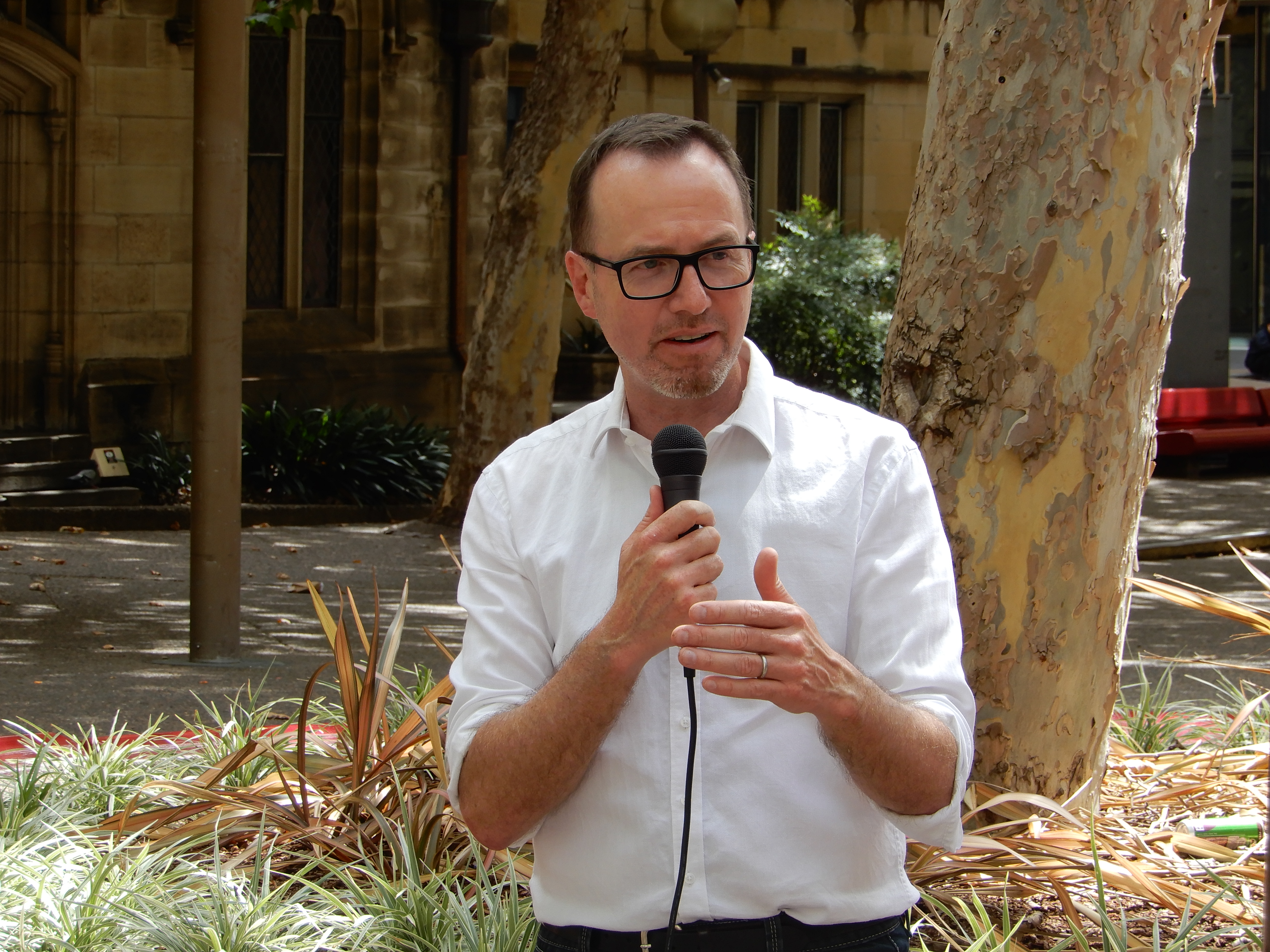“A Sense of Entitlement”: Shoebridge on Pork Barrelling and Lack of Federal Oversight

In the days leading up to the 2019 NSW state election, deputy premier John Barilaro joked with AAP about his nickname being “Pork Barrel-aro”.
The NSW Nationals leader further remarked that he’d like to be made state treasurer, as, if in charge of the coffers, he’d certainly live up to his moniker.
NSW premier Gladys Berejiklian quipped that it was a sound idea that her deputy went by the name “Pork Barrel-aro”, as he was always asking the state treasurer and herself for money, and, in most cases, he was getting it.
However, it’s since been revealed that at that very time, the premier and deputy premier were both involved in distributing the grants from the Stronger Communities Fund in a manner that saw 91 percent of $252 million handed over to local councils located in Coalition-held areas.
The practice of disturbing public money to government-held electorates for political gain is known as pork barrelling.
And it’s since come to light, that the NSW Liberal Nationals government has also been allocating arts funding and bushfire relief in this preferential way.
Living high off the hog
But these dodgy dealings aren’t confined to NSW.
Last year, as the federal Coalition launched JobKeeper to help struggling businesses pay their employees during COVID, public universities were denied the subsidy, while an elite Sydney golf course was given $2.8 million in wages only to subsequently turn a $3.5 million profit.
The Australian National Audit Office released a report last week, outlining that in the lead up to the 2019 federal election, Coalition MPs had handpicked 47 commuter carparks for funding worth $660 million, none of which had been recommended by the infrastructure department.
These new pork barrelling revelations follow on from a 2020 ANAO report, which exposed the federal Coalition – again leading up to the last election – having gifted millions in grants to Coalition marginal seats and targeted electorates for sports projects that hadn’t been on the official agenda.
Coinciding with all this, a persistent public campaign has been calling for the establishment of a federal anti-corruption commission, which PM Scott Morrison first promised in late 2018.
However, all his government has since done is begrudgingly release draft legislation that would establish such a body last November.
Pigs to the slaughter
When it comes to anti-corruption bodies, this state’s Independent Commission Against Corruption (ICAC) is held up as the shining example.
The commission is currently considering the allegations regarding the Stronger Communities Fund grants distribution, following a parliamentary inquiry having handed over its findings into the scandal in May.
The NSW Public Accountability Committee inquiry into NSW grants programs found the Stronger Communities Fund had morphed into “a brazen pork barrel scheme”. And the committee also uncovered further questionable allegations around arts funding and bushfire relief.
NSW Greens MLC David Shoebridge chairs the Public Accountability Committee. Sydney Criminal Lawyers spoke to him about the impact of having discernibly corrupt governments, the need to criminalise pork barrelling, and the reasons Morrison is avoiding establishing an ICAC.

Since July last year, you’ve been chairing the NSW parliamentary inquiry into grants schemes, which has uncovered the Berejiklian government pork barrelling in relation to the Stronger Communities Fund, arts grants, as well as bushfire relief.
David, how would you describe the way the Berejiklian government has been operating here?
This is a government that is putting its electoral interests and the interests of the Liberal and National Party ahead of the public interest time after time.
It is as though they think that public funds – public money – is the personal plaything of the premier and the deputy premier.
What has astounded me is the lack of any clear legal obligation to ensure public grants prioritise the public rather than a political interest. It’s literally a rules-free-zone.
But this isn’t confined to NSW. The Morrison government has been caught up in numerous rorts.
Just last week, we learnt of pork barrelling around car parks, as well as the favourable distribution of JobKeeper to the Royal Sydney Golf Course.
What does this tell us about the current federal government?
This tells us that Coalition governments – state and federal – are addicted to handing out public money to benefit Coalition MPs and to benefit interests with close connections to the Coalition.
What we are seeing in the clearest possible way is a sense of entitlement amongst the political class.
In part it is shared by Labor: the idea that once they’re in power and they become ministers, there really are no limits on how they can exercise their discretion in order to get themselves re-elected.
That image of political entitlement is now sinking into the rest of Australia and, collectively, Australia is deeply offended by it.
What sort of knock-on effect would you say having a government that openly appears corrupt has upon the nation as a whole?
We’re right in the middle of a public health crisis and we’re also in a climate crisis, and we need government – local, state and federal – to be stepping up.
To some extent, that has happened in addressing COVID, but, at the same time, people’s belief in the integrity of government – the belief that government is there for all of us – is being undermined by rort after rort after rort.
It’s no surprise that the Coalition has no interest in supporting government. They are a party largely committed to dismantling and reducing the impact that the role of government has in our daily lives.
Right now, that is particularly dangerous.
There are arguments around whether the Berejiklian government’s pork barrelling efforts could be classed as having breached the law.
Is there a need for law reform in terms of the distribution of public funds for political gain?
In NSW, we are fortunate to have ICAC, and the ICAC Act defines corruption very broadly.
It’s my view that the conduct we’ve seen by the Berejiklian and Barilaro government has obviously met the definition of corrupt conduct under the ICAC Act.
However, ICAC is the ultimate judge of that.
What is missing in NSW is a legal consequence. So, it may be illegal under the ICAC Act, but not actually a crime. And that’s the loophole that the Berejiklian government is trying to exploit.
That is why the premier can say that her government’s gross pork barrelling is not illegal.
In NSW, if a politician is suspected of breaking the law whilst is office, they’re sent to the ICAC to be tried.
How effective is this independent commission in your opinion? What effect does it have on local politics?
ICAC exercises a critical oversight role in NSW. It provides a nonpartisan avenue to investigate and then pass judgement on corrupt conduct. That is totally missing at the federal level.
However, what is missing even in NSW is a legal consequence outside of the political consequence of a finding of corrupt conduct.
And lastly, David, despite promises from the PM to establish a federal anti-corruption body back in December 2018, there is still no federal equivalent of the ICAC.
What are your thoughts on why the Morrison government is so reluctant to follow through on what is the will of the people?
With a government that is addicted to highly politicised pork barrelling – that is willing to use public money for their obvious partisan interest – it is no wonder that they haven’t pushed on with establishing a federal ICAC.
No executive government wants to have something like ICAC sitting on their shoulder and potentially passing judgement on their misuse of public money.
You don’t have to be cynical about this. You just have to realise how it’s not in Morrison’s interests to have a federal ICAC.
The only answer I see is to force the Coalition out of office and to force any incoming government to commit to legislating an ICAC within the first 100 days of a new parliament.
This is necessary because it’s astounding how rapidly the promise to deliver an ICAC dissolves once either of the major parties has their hands on the coffers.







